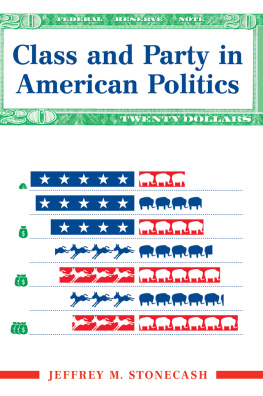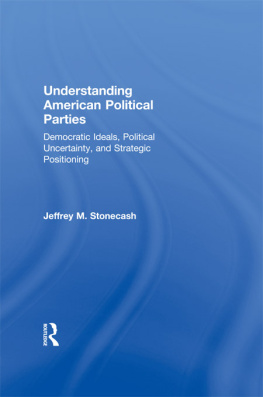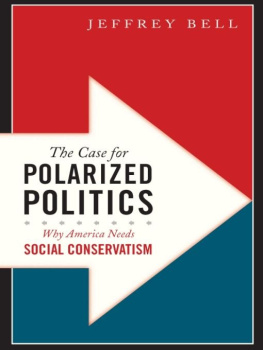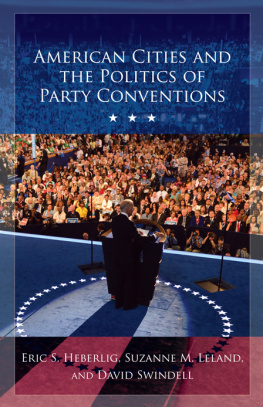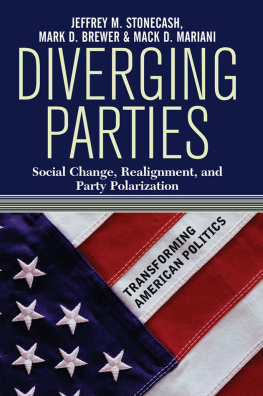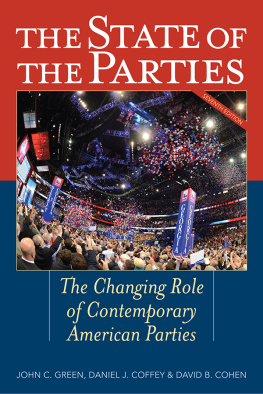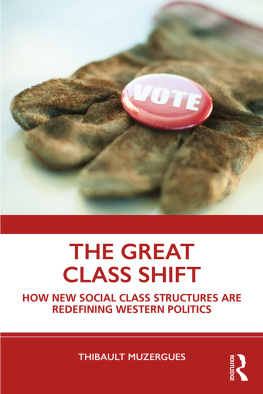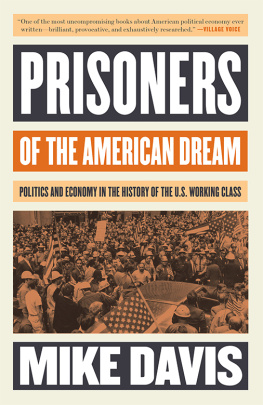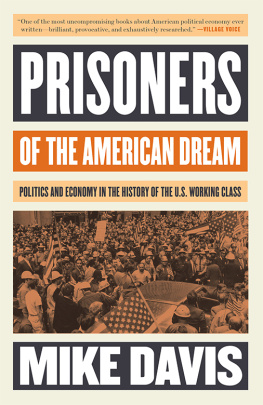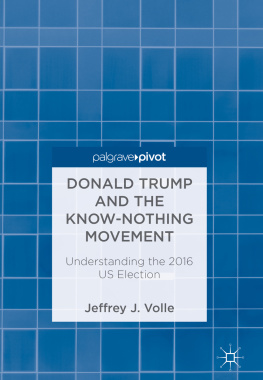Class and Party in American Politics
Transforming American Politics
Lawrence C. Dodd, Series Editor
Dramatic changes in political institutions and behavior over the past three decades have underscored the dynamic nature of American politics, confronting political scientists with a new and pressing intellectual agenda. The pioneering work of early postwar scholars, while laying a firm empirical foundation for contemporary scholarship, failed to consider how American politics might change or recognize the forces that would make fundamental change inevitable. In reassessing the static interpretations fostered by these classic studies, political scientists are now examining the underlying dynamics that generate transformational change.
Transforming American Politics brings together texts and monographs that address four closely related aspects of change. A first concern is documenting and explaining recent changes in American politicsin institutions, processes, behavior, and policymaking. A second is reinterpreting classic studies and theories to provide a more accurate perspective on postwar politics. The series looks at historical change to identify recurring patterns of political transformation within and across the distinctive eras of American politics. Last and perhaps most important, the series presents new theories and interpretations that explain the dynamic processes at work and thus clarify the direction of contemporary politics. All of the books focus on the central theme of transformationtransformation in both the conduct of American politics and in the way we study and understand its many aspects.
Books in This Series
Class and Party in American Politics, Jeffrey M. Stonecash
Congress and the Decline of Public Trust, edited by Joseph Cooper
Public Opinion in America, Second Edition, James A. Stimson
Still Seeing Red, John Kenneth White
Governance and the Changing American States, David M. Hedge
Masters of the House, edited by Roger H. Davidson,
Susan Webb Hammond, and Raymond W. Smock
Governing Partners, Russell L. Hanson
The Parties Respond, Third Edition, L. Sandy Maisel
Revolving Gridlock, David W. Brady and Craig Volden
The Collapse of the Democratic Presidential Majority, David G. Lawrence
The Divided Democrats, William G. Mayer
Extraordinary Politics, Charles C. Euchner
The Irony of Reform, G. Calvin Mackenzie
Midterm, Philip A. Klinkner
Broken Contract, Stephen C. Craig
Young Versus Old, Susan A. MacManus
The New American Politics, Bryan D. Jones
Campaigns and Elections American Style,
James A. Thurber and Candice J. Nelson
Congressional Politics, Second Edition, Leroy N. Rieselbach
Bureaucratic Dynamics, B. Dan Wood and Richard W. Waterman
The Semi-Sovereign Presidency, Charles Tiefer
The Dynamics of American Politics, Lawrence C. Dodd and Calvin Jillson
The Year of the Woman, Elizabeth Adell Cook,
Sue Thomas, and Clyde Wilcox
The Congressional Experience, David E. Price
The Politics of Interests, Mark P. Petracca
The Transformation of the Supreme Court's Agenda, Richard L. Pacelle Jr.
The Electoral Origins of Divided Government, Gary C. Jacobson
Managing the Presidency, Phillip G. Henderson
Transforming American Politics
First published 2000 by Westview Press
Published 2018 by Routledge
711 Third Avenue, New York, NY 10017, USA
2 Park Square, Milton Park, Abingdon, Oxon OX14 4RN
Routledge is an imprint of the Taylor & Francis Group, an informa business
Copyright 2000 by Taylor & Francis
All rights reserved. No part of this book may be reprinted or reproduced or utilised in any form or by any electronic, mechanical, or other means, now known or hereafter invented, including photocopying and recording, or in any information storage or retrieval system, without permission in writing from the publishers.
Notice:
Product or corporate names may be trademarks or registered trademarks, and are used only for identification and explanation without intent to infringe.
Library of Congress Cataloging-in-Publication Data
Stonecash, Jeffrey M.
Class and party in American politics / Jeffrey M. Stonecash.
p. cm.
Includes bibliographical references and index.
ISBN 0-8133-9756-1 (pbk.)
1. Political partiesUnited States. 2. Social classesUnited States. 3. United StatesPolitics and government19451989. 4. United StatesPolitics and government1989 I. Title. II. Series.
JK2261 .S86 2000
324.273'09'045dc21
00-027528
ISBN 13: 978-0-8133-9756-6 (pbk)
This book involves an enduring interest of mine: How politics structures a debate about equality of opportunity in society. Do parties organize the electorate to create a party system in which voters with differing interests have means of articulating their concerns? The analysis is also a testimony to the importance of periodically reassessing conventional wisdoms. For some time I read the literature on American politics that argued Democrats had alienated the white working class and that class political divisions were steadily declining. It seemed odd to me that working-class whites would move to a party that has not always expressed great concern for their difficulties in a rapidly changing economy. That led me to borrow the National Election Studies cumulative file from Joe Cammarano, a colleague, and assess the association between class and party voting over time. In the analysis, I presumed that the important matter was the effect of relative income position of respondents. I assumed that people with less income would have different partisan inclinations from those with more income. Although this seemed appropriate to me, I was unaware that most scholars examine class political divisions by asking people to identify their class and then examining how the "middle" or "working" class voted.
The results were clear and very surprising. Since the 1950s less-affluent whites have not deserted the Democratic Party. Indeed, the pattern is opposite to what is often stated. Less-affluent whites did not vote strongly for Democrats in the 1950s. Their political supportvoting and party identificationfor Democrats has increased over time. The results seem very important to me for understanding postWorld War II American politics. What analysts think happened does not appear to have happened; what has happened is important for understanding current partisan political disputes in Washington about public policy.
I do not presume that this book will in any way resolve the issue of how political divisions have evolved in recent decades. I hope it serves to prompt a fresh look at what has happened to electoral divisions in the last four decades. There is much to reexamine and sort, and this analysis is no more than a start. I hope the analysis presented in this book, simple as it is, will accomplish that. I also hope these findings prompt a reconsideration of how the less affluent and their grasp of politics and public policy debates are seen.


